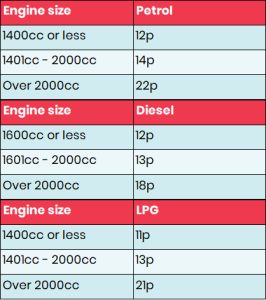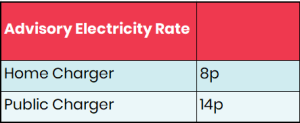What's in the news this month - September 2025
In this month’s news, apart from the big news of the the Chancellor announcing the date for her Autumn Budget, we look at the numbers of taxpayers that will need to report quarterly when Making Tax Digital (MTD) for Income Tax comes into force, there is also a scams warning for Self Assessment and the latest guidance for employers to update you on. And we update you on change in advisory fuel rates for electric cars and this quarter’s rates for petrol, diesel and LPG.
If you have any questions about any of the below please do get in touch with your Old Mill adviser in the first instance, or alternatively click here…

10th September 2025
-
Autumn Budget to be delivered on 26 November
The Autumn Budget will be delivered on 26 November by the Chancellor of the Exchequer, HM Treasury has announced.
The Office for Budget Responsibility’s latest outlook for the economy and public finances will be released on the same day.
The Budget outlines the government’s plans for raising or lowering taxes and sets out its spending commitments for health, schools, police and other public services.
Chancellor of the Exchequer, Rachel Reeves said: ‘Britain’s economy isn’t broken. But I know it’s not working well enough for working people. Bills are high. Getting ahead feels tougher. You put more in, get less out. That has to change.
‘We’ve got huge potential – world-leading brands, dynamic industries, brilliant universities, and a skilled workforce. We’re a global hub for trade.
‘Fixing the foundations has been my mission this past year … but I’m not satisfied. There’s more to do. Cost of living pressures are still real.
‘And we must bring inflation and borrowing costs down by keeping a tight grip on day-to-day spending through our non-negotiable fiscal rules. It’s only by doing this can we afford to do the things we want to do.
‘If renewal is our mission and growth are our challenge. Investment and reform are our tools. The tools to building an economy that works for you – and rewards you.’
Internet link: GOV.UK
Note: Old Mill will be providing guidance, seminars and webinars to all our clients post Budget announcements.
-
Over 850,000 self employed to be pulled into first phase of Making Tax Digital
HMRC has confirmed that 864,000 self-employed workers and landlords will be pulled into the quarterly reporting rules for Making Tax Digital (MTD) for Income Tax when it comes into force.
The first phase of MTD for Income Tax will begin next April at the start of the 2026/27 tax year. It will require individuals with a qualifying income over £50,000 to file quarterly returns using software with a final year end round out.
When businesses need to start using MTD for Income Tax depends on their qualifying income within a tax year. If their qualifying income is over:
- £50,000 for the 2024/25 tax year, they will need to use it from 6 April 2026
- £30,000 for the 2025/26 tax year, they will need to use it from 6 April 2027
- £20,000 for the 2026/27 tax year, they will need to use it from 6 April 2028
According to HMRC, around 2.9 million have a qualifying income above £20,000 and will need to join MTD for Income Tax, based on self assessment figures for 2023/24.
HMRC said:
‘MTD for Income Tax is a new way for sole traders and landlords to report their income and expenses to HMRC. They will need to keep digital records and every quarter, submit simple summaries of their income and expenses to HMRC using compatible software. This is expected to reduce the tax gap by reducing the scope for error and failure to take reasonable care.’
Internet link: GOV.UK
Note: Old Mill will be providing help and advise for all clients throughout their transition into MTD.
-
Warning as 170,000 self assessment scams reported to HMRC
HMRC is calling on self assessment taxpayers to remain vigilant to scams that claim to be from the department after receiving 170,000 reports of incidents.
The tax authority says that scammers often impersonate HMRC, offering fake refunds or demanding urgent payments to steal personal and banking information.
More than 170,000 scam incidents were reported to HMRC in the 12 months to 31 July 2025, and 47,000 of these reports involved fake tax refund claims.
HMRC will never:
- leave voicemails threatening legal action or arrest
- ask for personal or financial information via text message or email
- contact customers by email, text, or phone to inform them about a refund or ask them to claim one.
Anyone due a refund can claim it securely via their HMRC online account or via the HMRC app.
HMRC says that filing early can also help, as those who have already submitted their tax return are less likely to be caught off guard by scam attempts closer to the self assessment 31 January 2026 deadline.
Kelly Paterson, HMRC’s Chief Security Officer, said:
‘Scammers target individuals when they know self assessment customers will be preparing to file their tax returns. We’re urging everyone to stay alert to scam emails and texts offering fake tax refunds.
‘Taking a moment to pause and check can make all the difference. Report any suspicious activity to us before the fraudsters do any more harm. Search ‘HMRC scams advice’ and refer to the scams guidance on GOV.UK to stay informed and protect yourself.’
Internet link: HMRC press release
-
Latest guidance for employers
HMRC has published the latest issue of the Employer Bulletin. The August issue has information on various topics, including:
- P11D and P11D(b) for tax year 2024/25
- PAYE Settlement Agreement – calculations and payment
- employers PAYE disputed charges
- Spotlight 69 — liquidation of a Limited Liability Partnership used to avoid Capital Gains Tax
- implementation of the Employment Rights Bill.
Internet link: GOV.UK
-
HMRC splits advisory fuel rates for electric cars
HMRC has split fuel advisory rates for electric cars depending on where drivers charge their company cars due to the price discrepancy between home and public chargers.
From 1 September 2025, the single rate for fully electric cars will be abolished and replaced with two different rates reflecting whether a car is charged at home or on a public charger.
The rate will be 8 pence per mile for home charging and 14 pence per mile for public charging. This will replace the current universal rate of 7 pence per mile.
These rates will be reviewed quarterly in line with petrol and diesel advisory fuel rates.
HMRC said:
‘The ‘Domestic electricity cost per kilowatt-hour’ is the Department for Energy Security and Net Zero annually published figure, uprated with the latest estimate of electricity prices from the Office for National Statistics.
‘The ‘slow or fast public charge cost per kilowatt-hour’ is the Zapmap public charging price index monthly published figure for slow or fast chargers (charging speed less than 50 kilowatts), uprated with the latest estimate of electricity prices from the Office for National Statistics.
‘A higher amount than the advisory rates can be used as long as you can show that the fuel cost per mile is higher. Therefore, if the public charger used is higher in cost per mile than the new advisory rate introduced for public charging, a higher rate can be used as long as you can show the cost per mile is higher.’
Internet link: GOV.UK AFR
-
Advisory fuel rates for company cars
New company car advisory fuel rates have been published and took effect from 1 September 2025.
The guidance states: ‘you can use the previous rates for up to one month from the date the new rates apply’. The rates only apply to employees using a company car.
The advisory fuel rates for journeys undertaken on or after 1 September 2025 are:

HMRC guidance states that the rates only apply when you either:
- reimburse employees for business travel in their company cars
- require employees to repay the cost of fuel used for private travel.
You must not use these rates in any other circumstances.
The Advisory Electricity Rate for fully electric cars is below. Electricity is not a fuel for car fuel benefit purposes.

If you would like to discuss your company car policy, please contact us.
Internet link: GOV.UK AFR
If you have any questions about any of the above please do get in touch with your adviser in the first instance, or alternatively click here…
